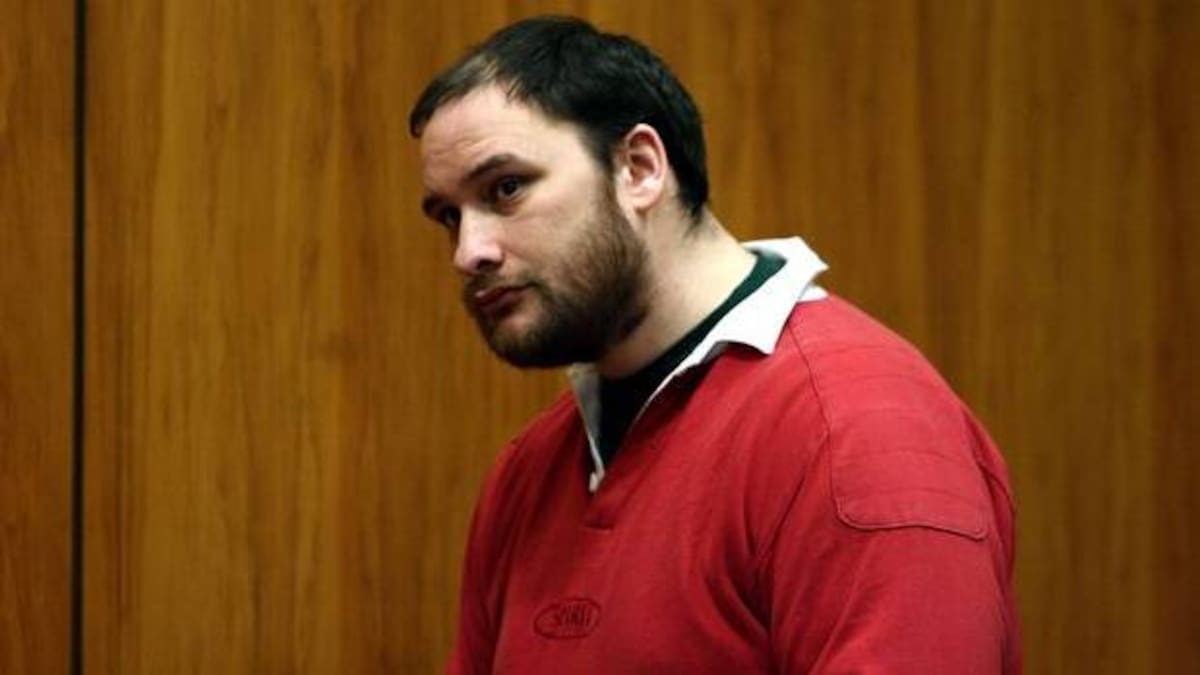“He is considered to have made early progress,” the board said, noting, however, that “he is still assessed as a high risk of violent reoffending and an above average risk of sexual reoffending”.
‘He was now accepting that he needed help’
Waihape was sentenced to life in prison with a minimum non-parole period of 18 years in 2005 for the rape and murder of a 24-year-old sex worker he’d met in Christchurch.
She’d agreed to go with him to a carpark before they had an argument about his refusal to wear a condom.
Waihape then strangled her, bound her hands and raped her before pushing her out of the car and then running her over with his vehicle multiple times.
AdvertisementAdvertise with NZME.
She became trapped under the car and was pleading for her life, but Waihape took no notice and ran her over again with witnesses saying he was laughing as he did so.
Peter Waihape was sentenced to preventive detention, on top of life imprisonment with a non-parole period of 18 years. Photo / File
Waihape then later drove the woman to the Avon River and threw her body into the water.
Three days before the murder, Waihape sexually assaulted a teenager whom he’d abducted off the street.
Waihape drove the girl around for several hours, violated her, then dropped her off. He had been released from prison just days before.
Waihape first became eligible for parole in January last year, when the board noted it had serious concerns about him.
At that hearing, Waihape told the board he was willing to resume work with a psychologist and complete any rehabilitative work he needed to do, despite not having done any since 2014.
“For his part, Mr Waihape told us that when he was previously seen by the psychologist, he was not ready to engage. He was very entitled. He reacted inappropriately and he had recognised that since,” panel convenor Neville Trendle said.
“He had addressed his own conduct with others … He said that he was now accepting that he needed help.”
Significant work ahead
In his latest appearance before the board last month, the psychologist he’d been seeing noted his good conduct in prison, and said that generally he interacts well but will walk away when he feels frustrated.
The board said that he was articulate and spoke well, and that his psychologist had validated a lot of what he’d said, and it had a profound impact on him.
AdvertisementAdvertise with NZME.
“Mr Waihape believes he needs significant individual work. He told the Board that he has made changes in his thinking and his behaviour and has managed many stressful and frustrating situations by simply not engaging,” the board’s ruling reads.
“We spoke with him about the importance of building trust with others and communicating around what is going on in his inner world.”
The board said that while Waihape had made progress, there was still significant work ahead and declined parole.
He will be seen again in another year.
Jeremy Wilkinson is an Open Justice reporter based in Manawatū, covering courts and justice issues with an interest in tribunals. He has been a journalist for nearly a decade and has worked for NZME since 2022.

